- Home
- Patricia McLinn
Hidden in a Heartbeat (A Place Called Home, Book 3) Page 6
Hidden in a Heartbeat (A Place Called Home, Book 3) Read online
Page 6
“We could talk.”
Her words came out so choppy and abrupt that she didn’t blame him for looking at her like she was speaking a foreign language.
“What?”
“You can give me more information about the ranch.”
He flicked the ignition key part way, then turned on the radio. Obviously, answering questions wasn’t high on his wish list.
She lifted one brow. “That’s fine as long as the truck battery lasts.”
He acknowledged the return of his own words with a twist of his lips and a slight nod.
Determined to be reasonable, even though he was mule-headed, she pointed out, “We can’t go anywhere. We can’t even get out of the truck. We might as well – ”
“I could get out. But I won’t.”
Now that response was a two-edged sword. He took a slice at her that she’d be unfit to try to climb out. yet let it be known in his backhand way that his particular brand of chivalry didn’t allow him to leave a woman alone in a truck stuck in a creek in the middle of nowhere in a rainstorm.
By her count, he’d circled the dial twice, finding six stations of complete static and one with just enough sound getting through to recognize a farm report.
While he leaned forward to fiddle with the radio with his right hand, his left hand rested atop the steering wheel. At first, she thought that what she saw were reflections of the rain’s tracks on the windshield. After a moment, though, she realized the marks across his knuckles, fingers and onto the back of his hand were the silvery threads of scars.
The urge to question parted her lips. The memory of gloves worn longer than necessary and that red rag wrapped around his hand closed them.
He switched the dial once more and one of those atmospheric flukes, a benign satellite – or perhaps, Rebecca thought, something less scientific – brought in a distant, unidentified classical station with crystal, mournful clarity.
“Oh, it’s Chopin.”
He grunted, but didn’t move the dial.
The music flowed into the truck’s cab. Any deficiencies from the radio or the transmission were masked – even enhanced – by the syncopation of rain on the truck roof. It was like every heartache any human had every suffered, transformed into music. And the alchemy of this transformation erased the bitter bite of regret while leaving the cleansing of sorrow.
And then it was gone.
Static followed after a short silence, and Luke switched off the radio.
“My heart fell to the ground.” Rebecca hardly realized she’d spoken aloud until Luke turned to her.
“What was that you said?”
There was no reason not to tell him. “My heart fell to the ground. It’s a phrase I think of when I hear music like that.”
“You said that before. Where’d you learn it? It’s unusual.”
With the power of the music still washing over her, she considered that. “I suppose it is. My mother used it when ...” She stopped, knowing she’d gone too far to let it drop. She breathed in, then out before finishing. “When I asked about my father.”
He didn’t say a word, but she felt the drag of his will, tugging her thoughts from her.
“I’ve never met my father.” She’d given that answer often enough, to questions that ranged from innocently friendly to purposely barbed. “I don’t even know his name. When I was little and would ask my mother about him, she’d cry, and say My heart fell to the ground.”
She reached into her bag, and pulled out a foil wrapped bar.
“Hungry? I suppose it’s only fair to split it with you.”
“Candy?”
Finally, his eyes flicked away from her. Heck, if it kept him from looking at her, she’d give him the whole thing no matter how cavernous her stomach felt.
“Granola.”
He grimaced like a little boy offered castor oil. “No thanks.”
“It’s good for you. Lots of energy.”
“Don’t need energy to sit and wait. Why’d your mother say that?”
She chewed slowly. He couldn’t expect her to answer with her mouth full, and maybe Walt was a faster fencer than he’d predicted. Maybe –
Luke’s eyes narrowed, and he repeated, “Why’d she say that about your father – My heart fell to the ground.”
“I suppose it was her way of saying he broke her heart. She was pregnant, and he deserted her, so she returned to Delaware.” She kept it matter of fact. “Not that she told me that. She didn’t tell me much of anything. I barely remember her. She died when I was six.”
“Six is plenty old enough. You must remember things.”
“Not much. We didn’t have a great deal of contact. Grandmother had charge of my upbringing. Mother drank. She’d stay in her rooms most of the time. What little I remember ... It’s mostly her sleeping a lot, and the smell and ...”
“And?”
“Waking up some nights to find her sitting on my bed, stroking my hair, and crying without a sound. I’d want to put my arms around her, but if I moved, she left, so, I’d lie there, feeling – ”
She shook herself, then gave great attention to rewrapping the rest of the granola bar. How had she let herself stray so far from facts? “My, all this from hearing a bit of Chopin.” She forced a smile as she looked up. “Think what Beethoven would have done.”
He was staring at her, his eyes intent, searching her face the way he had searched the land, reading the tiniest signs. The urge to look away and protect whatever he might be seeing clashed with the pride that wouldn’t let her.
It was the same pride that held her marble-statue still even when she realized he was reaching one hand toward her.
His fingers brushed the side of her jaw before his thumb touched just beyond the corner of her mouth.
“Crumb.”
She watched his lips form the word, but it took an extra beat for the sound to made sense. And that coalesced a segment of the sensations bombarding her nerves into the reality that he had flicked an errant seed from the granola bar from the corner of her mouth. But there were still all those other unexplained sensations. And he was moving his thumb again, his gaze following its path.
Slowly, the side of his thumb brushed across her lips, from the depths of one corner, to the rise at the center, down to the far corner, then back to the center, where it lingered.
She wanted to lick her lips. She wanted it desperately. To slide her tongue across the same terrain he’d just touched, to even touch this thumb, to taste his skin and— No. A shudder rose up in her, whether from fighting against the longing or from the longing itself she didn’t know, but she straightened away from his touch before the shudder could betray her.
His hand dropped and his gaze came back to her eyes. Why couldn’t he be wearing that darned cowboy hat now, when she would have paid good money to have her view of his face obscured?
Forcing a bright smile, she asked, “Do you know classical music, Luke?”
“No.”
“Oh, you seemed ...”
“No.”
“I’m sorry, I shouldn’t – ”
“There you go again.” He finally looked away from her. Relief had never felt so much like disappointment before. Although it also opened the door to other reactions, like curiosity.
“Don’t you ever say or do anything you’re sorry for, Luke?”
He slashed a look her way. “No.”
He was telling the flat-out truth. That was what flummoxed her. “Never?”
“I don’t care if someone else doesn’t like what I said, so there’s no sense saying sorry.”
“People will think you’re – ”
“Don’t care.”
“Aren’t there times you say or do something that you’re sorry about not because of the other person, but because it’s not what you thought you should say or do?”
“If I do, there’s no sense saying I’m sorry to myself.”
“Perhaps,” she conceded. “But I can’t believe
you never care what other people think of what you say or do.”
She caught the twitch at the corner of his mouth, so she was partly prepared when he said, “I don’t care what you believe.”
“People do form opinions of you, whether you care or not. Of course, one cannot please everyone, that would be unreasonable. Still, one has an obligation to maintain a certain level that has come to be expected of one’s name. And if one lowered that level for whatever reason, one has an even greater obligation to make up that deficit. It’s a debt owed to all the others of that name and – ”
“Are you still talking about me, Rebecca?”
She jolted.
His right eyebrow lifted. “One doesn’t like to stop a flow like that, but one gets to wondering.”
It was too biting to be humorous, but held too much humor to be offensive.
“My comments were inappropriate. In a business context such as this to step into the personal – ” He tilted one eyebrow, and they both knew they hadn’t stepped into the personal, they’d waded in. “ – is uncalled for. I know you don’t like people saying they’re sorry. But I do apologize.”
“That’s – ” He broke off, listening. “Truck.”
“Stay here,” he ordered without looking at her as he put his hat on. Only when Luke opened his door did she realize the rain had let up to a drizzle.
He swung himself up to stand on the door frame, his torso angled out, then carefully turned around. With a grunt of exertion, he jumped toward the solid earth where the back wheels of the truck still rested. Through the small, partly fogged-up back window she saw Luke coming to his feet as Walt came up.
From their overheard conversation she realized some of the creek bank had given way under the front wheels of the truck. The crumbling earth left the truck sharply angled, though in no imminent danger of being swept away. But it meant it would take more equipment than the lightweight truck Walt was driving to get it out.
Luke and Walt’s discussion faded as her mind wrestled with other matters.
She hadn’t given the possibility of their being in danger a thought. Not one thought. She’d sat in the cab feeling perfectly secure. Had she believed so strongly that Luke would take care of things that she’d abdicated all her brains? So caught up in the sense of the two of them, alone in the world, that she’d forgotten everything else? What on earth was wrong with her?
She slung the strap of her bag across her body and had opened the door by the time Luke came around to her side of the truck. He scowled when he saw her starting to back out of her door, her feet searching for the bottom of the door frame.
“I told you to stay put.”
“I’m capable of getting out of a truck.”
“Yeah? If you’re wrong, you’ll slide right into the creek. How’ll your computer like that?” He didn’t wait for an answer. Holding onto the side of the truck bed, he stretched out his right leg and propped his foot on the extension by the wheel well that vaguely resembled a running board. “Put your foot on my thigh, then swing around me and catch hold of Walt.”
“I don’t – ”
“We don’t have time for you getting prissy on us.”
“Prissy!”
She clamped her teeth down and stretched for that first long step to his angled thigh. If her heavy hiking boot’s grid dug into his flesh, she was only following orders. And she couldn’t help it that her heavy bag slipped around and clipped his shoulder before bouncing off his face.
A string of curses accompanied her as she swung her free leg to gain momentum, and clasped Walt’s outstretched arm to reach solid ground.
“You did that real well, Rebecca,” said Walt. “You’re real graceful.”
A grunt from Luke seemed to contradict that compliment.
“Thank you, Walt,” she said with a smile. “And thank you so much for coming to rescue us. I don’t know what we would have done if you hadn’t been here.”
Walt sent a rather alarmed look toward Luke, who as far as Rebecca could tell, showed no reaction.
“Uh, glad to be of help.” Walt swallowed. “Uh, you want to drive, Luke?”
“No, you go ahead.” As Walt trotted toward the other side of the gray truck, Luke ordered her, with a jerk of his head toward her bag, “Give me that thing. Damned near a lethal weapon.”
She handed over the bag with no sympathy. “Only to people who go around giving orders all the time.”
He ignored that, sliding the bag into a gap behind the seat, then nodding for her to climb up.
As Walt clambered in the other side and Luke swung in behind her, the sight of a gearshift lever in the space where her legs and feet should have gone stopped her momentarily. The men bracketed her, so she had no choice but to seat herself with as little fuss as possible. That left her shoulders and torso between the two men, but to give Walt access to the gearshift lever, she had to swing her legs to her right, toward Luke.
With her hands folded in her lap, she nearly echoed one of the postures approved of in Miss Meacham’s deportment class. The image of wearing this outfit in front of that formidable woman brought a totally unexpected giggle.
Luke slanted a questioning look toward her.
Which reminded her of how his left thigh pressed against her right one. How his longer legs bridged hers from the knee down. So the back of his calf now and then brushed against the front of her shin with the rocking, jolting motion of the truck.
She tried to eliminate the contact by drawing her feet as far to the left as the gearshift would allow at the same time tilting herself away from him.
So she was entirely off balance when Walt called out, “Hold on! We’re going off road!” a split second before jerking the wheel to the left. The truck lurched in the same direction, and Rebecca threatened to tumble into the driver’s lap.
In the instant before that could happen, with possibly dire consequences for Walt’s ability to steer, Rebecca felt a strong grip on her right thigh, clamping her against an even stronger solidity.
The truck righted for an instant, and she sorted out the sensations bombarding her as Luke’s large right hand hooked around her thigh, above her knee, holding it tight against his own leg. Even with his arm angled across his body, his hold was strong enough to counterbalance the slide of her center of gravity toward Walt.
Fighting the truck’s motion, she shifted her posterior, and brought her left leg back into place. Which left Luke’s hard, hot hand pressed between her legs.
“You can let go now, I’m – ”.
“Hold on,” came Luke’s terse order in her right ear.
When the truck jolted as hard to the right as it had to the left, Rebecca did exactly that, grabbing with both hands to the only stability within reach – Luke’s right arm. As the pitch and roll of the truck flung her against Luke, the force of her hold on his arm drew his hand higher and higher between her tightly clamped thighs.
The truck shimmied, and the friction was incredible. A shudder passed through her tensing muscles, clamping her hands even tighter around Luke’s arm, until the side of his hand was tight against the juncture of her thighs, his thumb nestled in the crease between her torso and thigh. With no direction from her mind, her hands flexed around his arm, and his hand seemed to stroke and rock against her.
She heard a sound – part squeak, part moan. Oh, Lord, that was her.
She dropped her hands from his arm, and the pressure of his hand immediately eased. Against all instincts, she forced her leg muscles to relax enough to no longer hold his hand there. He removed it only by slow degrees as the truck’s rocking gradually subsided into a more familiar jouncing.
Walt whistled. “Whoo-hee!”
Luke drew back, and she resumed her original position. The brushing of leg to leg was not only still here, but now served as a reminder of what had just happened.
“Sorry ‘bout that.” Walt eased his grip on the steering wheel. He flexed his fingers, one hand at a time. “Stupid cow, lying
smack dab in the middle of the road. Didn’t see her in time coming ‘round that curve to stop. Had to go around or hit her.”
“You were going too fast, Walt,” Luke said evenly.
Rebecca forced herself to glance toward Luke. Her downcast eyes reached only his lap. That was more than enough to tell her that their adventure had affected him strongly – very strongly.
She felt the heat of a blush flowing up her neck and spilling into her cheeks. She could do as little about that as she could about what she feared might be triumphant pleasure fluttering in the pit of her stomach.
“I know, Luke. It was stupid.”
“We almost flipped.”
“I know, I know. I’m real sorry, Luke, Rebecca.” Walt’s crestfallen face broke into a smile then. “Hell of ride, though, wasn’t it?”
*****
Rebecca had pushed thoughts of the morning to the deepest corner of her mind, walling them there with a full day at the historical site. After a quick meal, she drove to Sheridan to continue her time-consuming search of old newspapers for any shred that might explain the letter’s reference to Far Hills.
At her apartment, she read her notes from the historical site, jotting questions for the next morning. When she almost nodded off with her cheek resting on the eraser of her pencil, she decided she could safely go to bed without those barricaded thoughts escaping.
Wrong.
She shouldn’t have talked so much.
And of all things, about her personal history. She certainly shouldn’t have told Luke about her mother. She rarely told anyone about her family, except two college friends, now scattered, one to London, the other to Florida.
Emotions. She’d let them lead her into these revelations, and then she’d let them slop all over as if she had no restraint at all. And why, of all the people she’d encountered in Wyoming or anywhere else, had she said all that to Luke Chandler?
She replayed everything she’d said. At some point, the tape finally ran out and she slept.
But when she woke with a start in the pearlized gray of earliest morning, with the covers twisted around her, her breathing erratic, and the memory of the dream real enough to make her ache, she knew it had not been conversation she’d dreamt of.

_preview.jpg) Almost a Bride (Wyoming Wildflowers Book 1)
Almost a Bride (Wyoming Wildflowers Book 1)_preview.jpg) Prelude to a Wedding (The Wedding Series Book 1)
Prelude to a Wedding (The Wedding Series Book 1)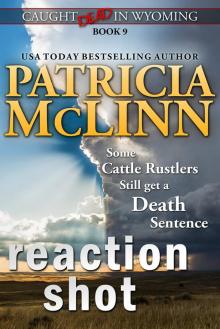 Reaction Shot (Caught Dead in Wyoming, Book 9)
Reaction Shot (Caught Dead in Wyoming, Book 9)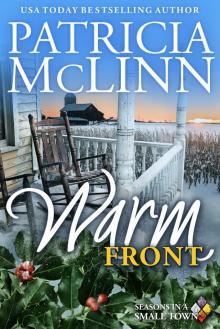 Warm Front
Warm Front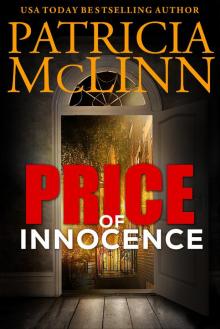 Price of Innocence
Price of Innocence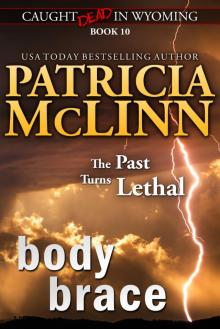 Body Brace (Caught Dead in Wyoming, Book 10)
Body Brace (Caught Dead in Wyoming, Book 10)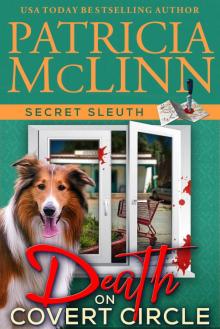 Death on Covert Circle
Death on Covert Circle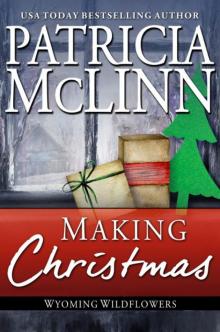 Making Christmas
Making Christmas Death on Torrid Ave.
Death on Torrid Ave.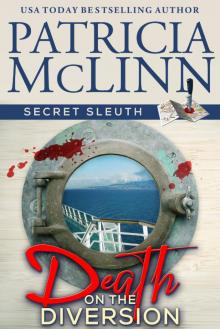 Death on the Diversion
Death on the Diversion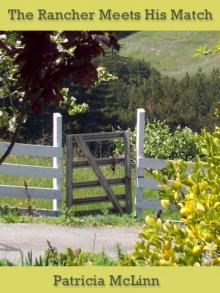 The Rancher Meets His Match
The Rancher Meets His Match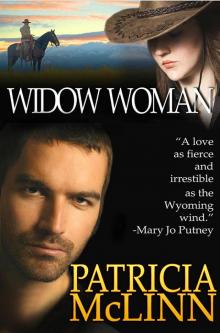 Widow Woman
Widow Woman The Runaway Bride
The Runaway Bride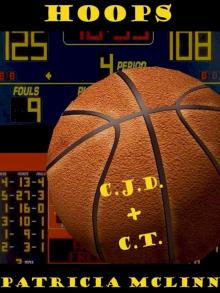 Hoops
Hoops A Stranger in the Family (Book 1, Bardville, Wyoming Trilogy)
A Stranger in the Family (Book 1, Bardville, Wyoming Trilogy)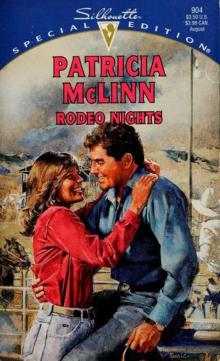 Rodeo Nights
Rodeo Nights Wedding Series Boxed Set (3 Books in 1) (The Wedding Series)
Wedding Series Boxed Set (3 Books in 1) (The Wedding Series)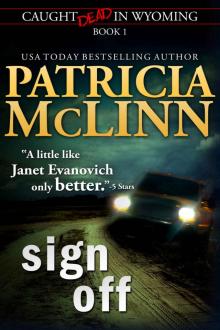 Sign Off (Caught Dead in Wyoming, Book 1)
Sign Off (Caught Dead in Wyoming, Book 1)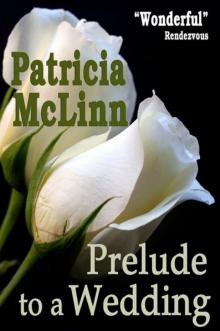 Prelude to a Wedding
Prelude to a Wedding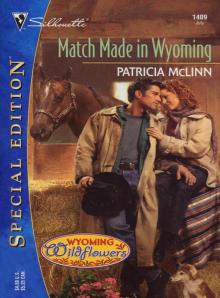 MATCH MADE IN WYOMING
MATCH MADE IN WYOMING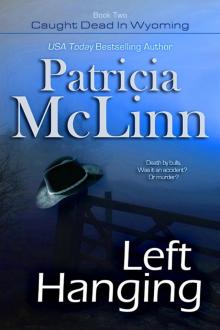 Left Hanging
Left Hanging What Are Friends For?
What Are Friends For?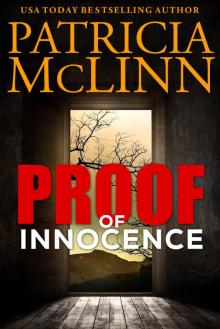 Proof of Innocence
Proof of Innocence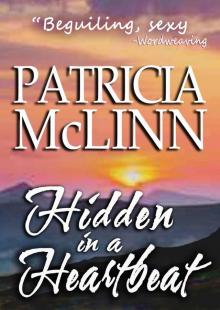 Hidden in a Heartbeat (A Place Called Home, Book 3)
Hidden in a Heartbeat (A Place Called Home, Book 3)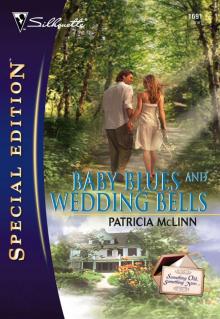 Baby Blues and Wedding Bells
Baby Blues and Wedding Bells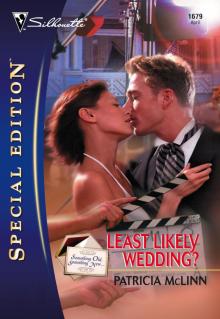 Least Likely Wedding?
Least Likely Wedding? Heart Stealers
Heart Stealers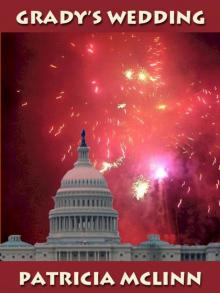 Grady's Wedding
Grady's Wedding Right Brother
Right Brother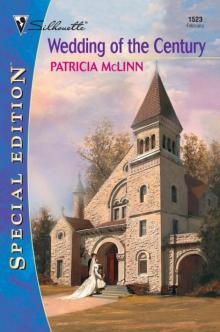 Wedding of the Century
Wedding of the Century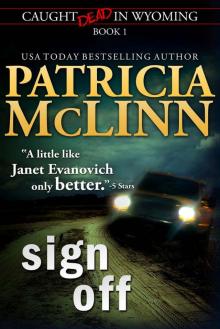 Sign Off
Sign Off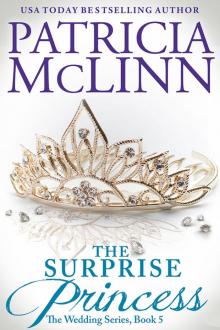 The Surprise Princess
The Surprise Princess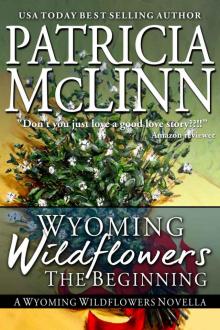 Wyoming Wildflowers: The Beginning
Wyoming Wildflowers: The Beginning